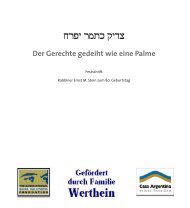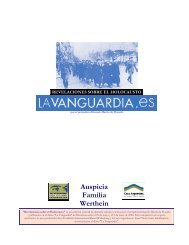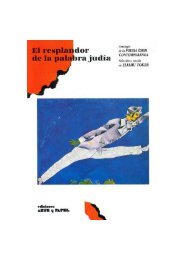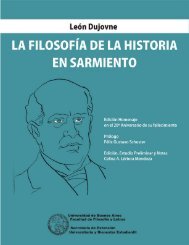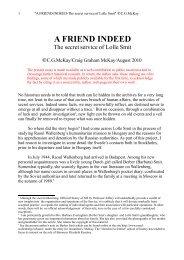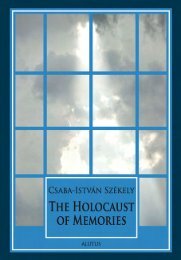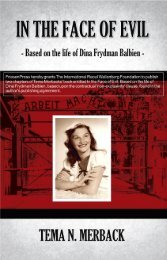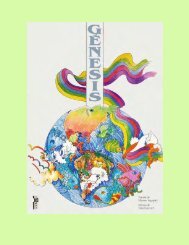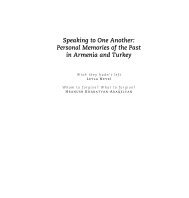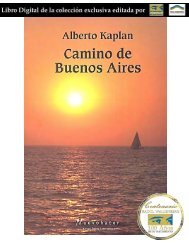We were There - The International Raoul Wallenberg Foundation
We were There - The International Raoul Wallenberg Foundation
We were There - The International Raoul Wallenberg Foundation
You also want an ePaper? Increase the reach of your titles
YUMPU automatically turns print PDFs into web optimized ePapers that Google loves.
and, last but not least, an indomitable spirit to do anything. Ivan Szekely promised to let me know if there<br />
was a post for me.<br />
In the meantime, around May 15 th , the deportations started in Hungary. <strong>We</strong> did not know exact details.<br />
<strong>The</strong> newspapers, if they mentioned anything at all, called it “the purification of the country” or<br />
“eliminating subversive elements.” <strong>We</strong> lived in one of the “Jewish houses.” My aunt came to live with us,<br />
and we also had to put up an unknown middle-aged lady. <strong>We</strong> <strong>were</strong> five people in our two and a half room<br />
flat, but we <strong>were</strong> still lucky because we could live in the same house where we had lived before, and we<br />
had our own kitchen and bathroom. <strong>The</strong> non-Jewish janitor, a fairly decent woman, had the list of all the<br />
inhabitants in the flats. She had the authority to check that after 6 p.m. everybody was at home and to<br />
report if anybody was missing, or if by chance there was somebody whose name didn’t figure on the list.<br />
She was powerful and had an important function she had never had before, however she didn’t abuse it.<br />
Dr. Szekely didn’t contact me again, but through the grapevine and a business friend of my father, I found<br />
out that <strong>Raoul</strong> <strong>Wallenberg</strong> had arrived from Sweden at the beginning of July. He set up an office at the<br />
Swedish Embassy. One fine day I left home, covering my yellow star with a big shawl, and set out for the<br />
Swedish Embassy. Luckily, the janitor didn’t see me. I did not know what I was expecting. During the 40<br />
minute walk (I did not dare to take the tram) I was imagining all kinds of scenarios: I shall not be admitted,<br />
I shall be arrested by the Hungarian police at the door, or maybe, just maybe, I shall be asked to stay.<br />
Whatever would happen, I had to try.<br />
<strong><strong>The</strong>re</strong> was a long queue in front of the building; there was a guard, but luckily not a policeman. I had a<br />
letter from the Hungarian Red Cross thanks to my father’s business friend, and I insisted on seeing Dr.<br />
Szekely. I was not at all sure he was there, but I hoped for the best. After some argument, the guard let<br />
me in. Luckily Dr. Szekely was there, already functioning in one of the offices. He recognized me, and<br />
explained that the service had just started and that he was very busy, but he introduced me to the head<br />
of the Personnel Department and left. <strong><strong>The</strong>re</strong> I was! <strong>The</strong> Head of the Personnel Department, after hearing<br />
my name, found out that he used to know my father when they <strong>were</strong> both students at Debrecen, a large<br />
town where we came from. So he agreed to give me a job as a typist. Fortunately, he didn’t check my<br />
typing skills. <strong>The</strong> family connection was enough. I could start the next day. To say that I was pleased is an<br />
understatement! I was ecstatic! On the top of the world!<br />
When I arrived the next day I realized that the “Special Service” of the Swedish Embassy was facing<br />
teething problems. <strong>Raoul</strong> <strong>Wallenberg</strong> was a young Swedish businessman. He had travelled extensively in<br />
Europe, studied in the United States, and worked in Haifa, where he met German Jewish refugees. He was<br />
deeply shocked when he heard about the atrocities committed by the German Nazi Government. He had<br />
also been in Hungary on business in 1942, and he was appalled to see how Jewish people <strong>were</strong> treated as<br />
a consequence of the law against Jews. When the Swedish Government was urged by Washington D.C. to<br />
undertake a humanitarian mission to save the Jewish population of Hungary, <strong>Wallenberg</strong> was the ideal<br />
candidate to carry out such a task, and he was more than willing to undertake such a challenging and<br />
perilous mission. At that time I only knew he was there trying to set up a rescue service to save people<br />
from deportation. <strong>The</strong> ways and means had to be organized and negotiated with the German and<br />
Hungarian authorities.<br />
His plan was to issue a Schutzpass 52 , a document of safe conduct, for people who had close family or<br />
business contacts with Sweden. This document was to guarantee that these people would be admitted to<br />
Sweden as soon as possible. In the meantime, they <strong>were</strong> under the protection of the Swedish Embassy. It<br />
was written in Hungarian and in German, and it was supposed to be respected by the Hungarian and<br />
German authorities. <strong>The</strong> holders of these documents <strong>were</strong> to stay in protected Swedish houses. <strong><strong>The</strong>re</strong><br />
<strong>were</strong> not a very large number of people with close Swedish contacts. Some people even took names and<br />
addresses from telephone directories of Stockholm, Göteborg and other Swedish towns. So we, the<br />
52 See the glossary for more information about the Schutzpass.<br />
37



